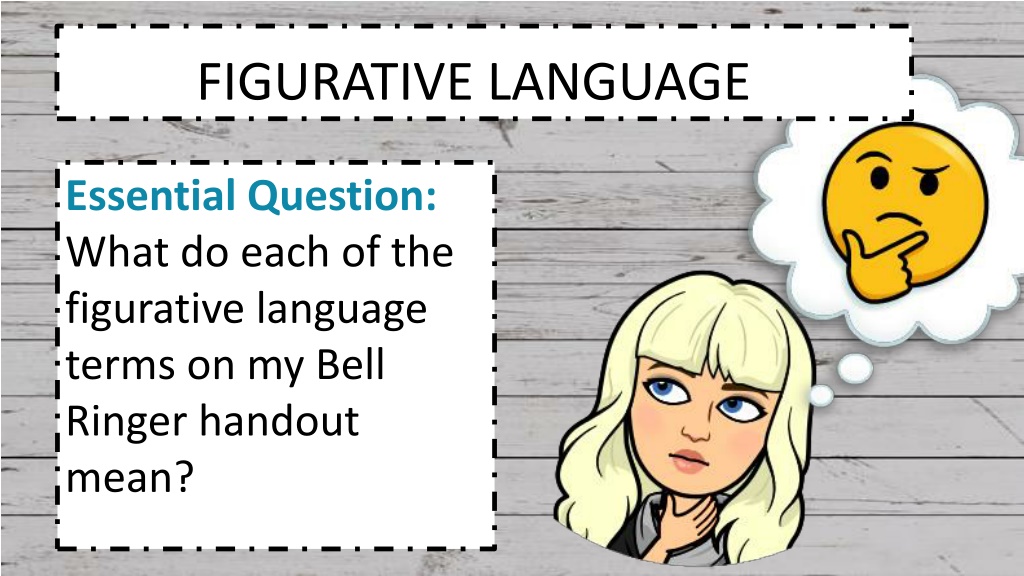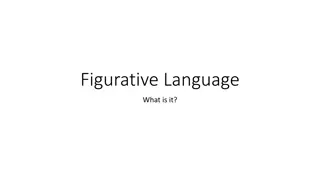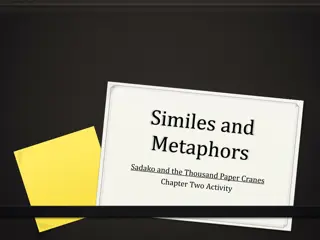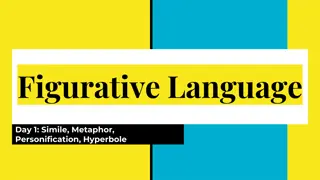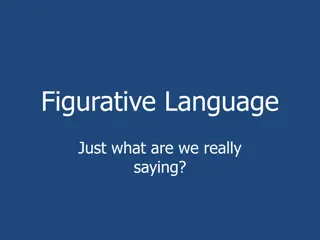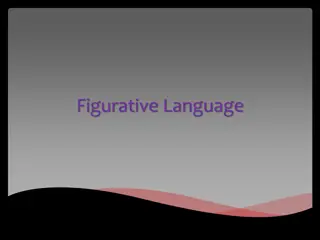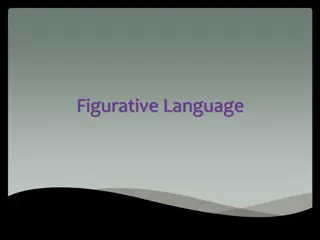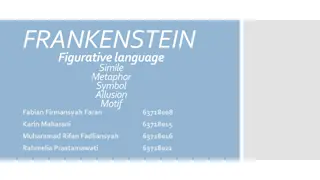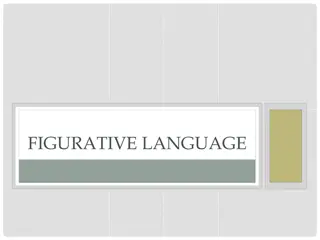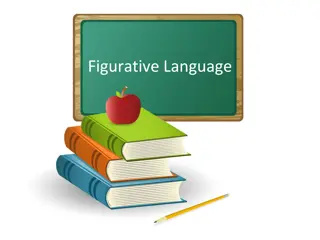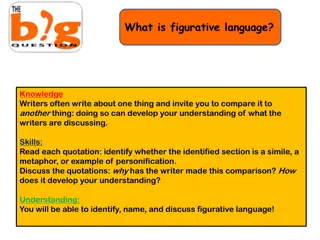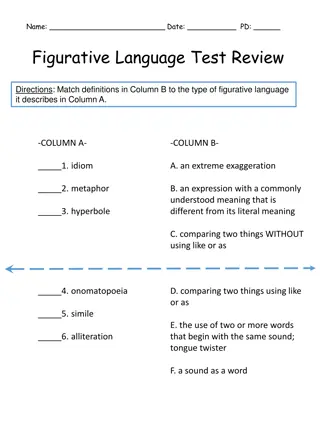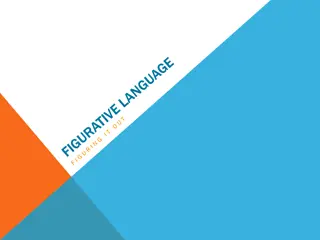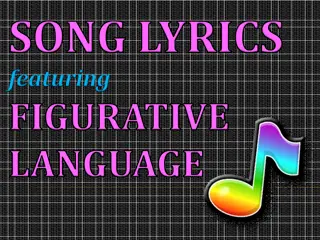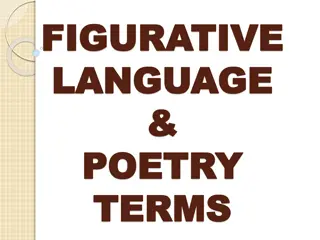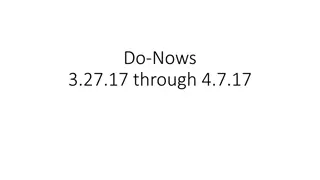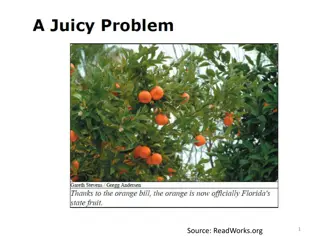Understanding Figurative Language in English Literature
Explore the meaning and examples of various figurative language terms such as simile, metaphor, personification, onomatopoeia, oxymoron, idiom, hyperbole, allusion, and alliteration. Enhance your understanding of how these literary devices are used to add depth and imagery in writing.
Download Presentation

Please find below an Image/Link to download the presentation.
The content on the website is provided AS IS for your information and personal use only. It may not be sold, licensed, or shared on other websites without obtaining consent from the author. Download presentation by click this link. If you encounter any issues during the download, it is possible that the publisher has removed the file from their server.
E N D
Presentation Transcript
FIGURATIVE LANGUAGE Essential Question: What do each of the figurative language terms on my Bell Ringer handout mean?
SIMILE A comparison using like or as . EXAMPLE: I am as busy as a bee. She is as annoying as nails on a chalkboard. We re like two peas in a pod.
METAPHOR One thing conceived as representing another, a comparison without using like or as . EXAMPLE: My emotions are a roller coaster. I am going to be toast when I get home.
PERSONIFICATION A figure of speech in which inanimate objects or abstractions are endowed with human qualities or are represented as possessing human form. EXAMPLE: Opportunity was knocking at her door. The flowers danced in the wind.
ONOMATOPOEIA Uses words that sound like their meaning. EXAMPLE: The burning wood hissed and crackled. He buzzed the doorbell.
OXYMORON A figure of speech that uses contradictory meanings to draw attention or add comedic value. EXAMPLE: There might be a raging brook on our hike. I am busy doing nothing. My bruise is growing smaller.
IDIOM A speech form or an expression of a given language that is peculiar to itself grammatically or cannot be understood from the individual meaning of its elements. EXAMPLE: It s raining cats and dogs. Don t jump the gun. Break a leg!
HYPERBOLE Obvious and intentional exaggeration. EXAMPLE: I am so hungry I could eat a horse. My backpack weighs a ton!
ALLUSION An expression designed to call something to mind without mentioning it explicitly, an indirect or passing reference (usually to well-known people, events, places, literature, etc.). EXAMPLE: She became a Scrooge whenever the Christmas season came around. If you lie, your nose might grow like Pinocchio s.
ALLITERATION The use of words that begin with the same sound near one another. EXAMPLE: Betty bought butter but the butter was bitter, so Betty bought better butter to make the bitter butter better. Whereat, with blade, with bloody blameful blade, He bravely breach'd his boiling bloody breast.
PUN A joke exploiting the different possible meanings of a word or exploiting words that sound alike but have different meanings. EXAMPLE: The Energizer Bunny was arrested charged with battery.
ASSONANCE The resemblance of sounds in the vowel sounds of words. EXAMPLE: Poetry is old, ancient, goes back far. It is among the oldest of living things. So old it is that no man knows how and why the first poems came. The rain in Spain falls mainly in the plains.
SYNECDOCHE A part of speech that refers to a part as the whole or a whole as a part. EXAMPLE: The police are here. We need all hands on deck. I ve got some wheels today. We are in America.
IRONY The use of words that mean the opposite of what you really think for effect (can be humorous), generally a difference between appearance and reality. EXAMPLE: The procrastinators meeting has been postponed. I just got a flat tire, lucky me!
